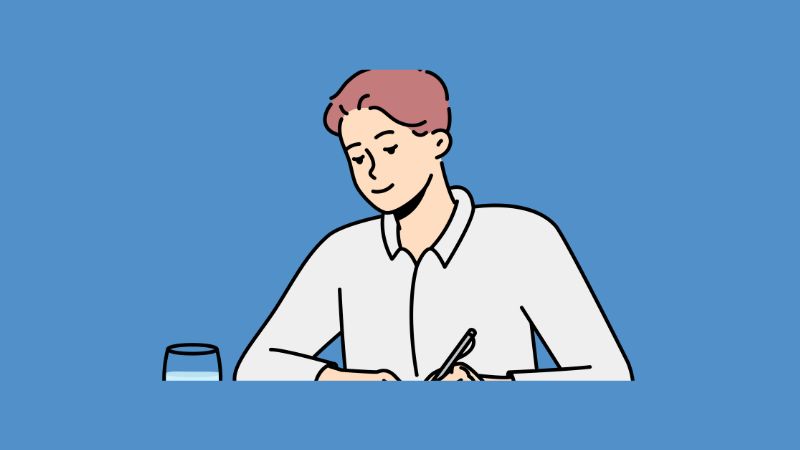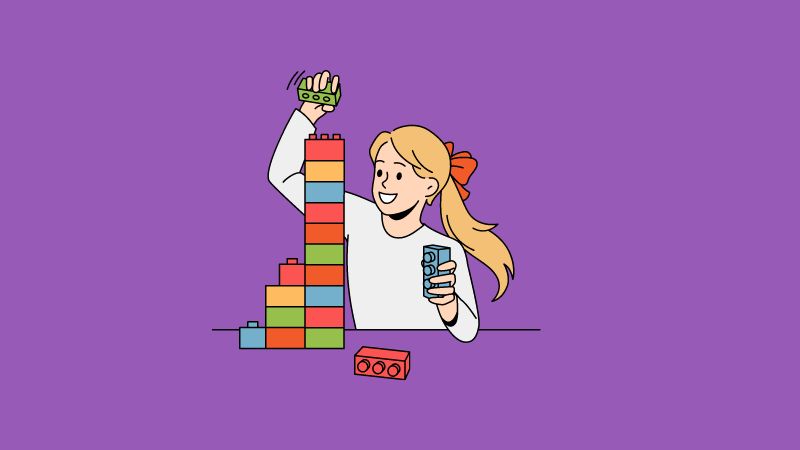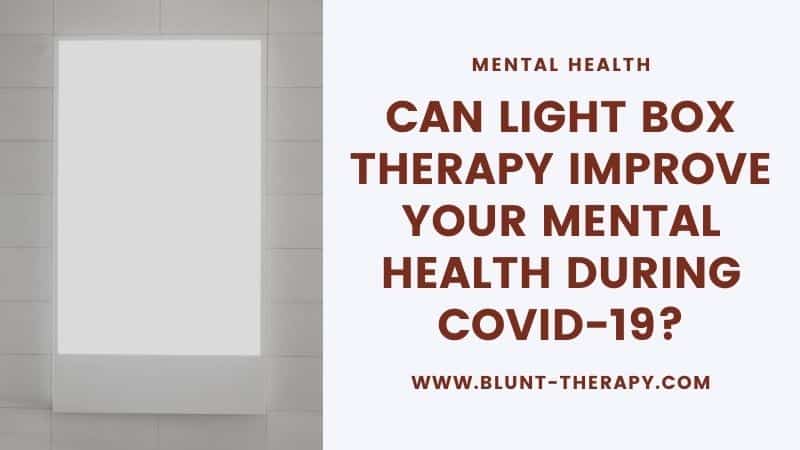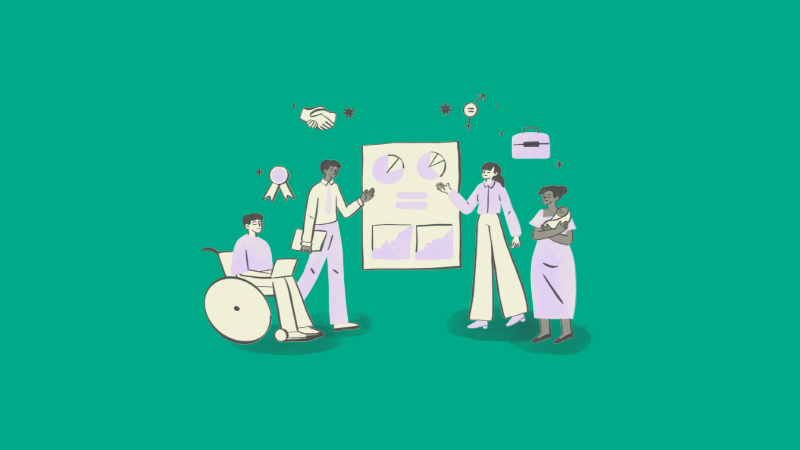Table of Contents
Affiliate link notice: As an affiliate of BetterHelp and other third-party vendors, We will receive compensation if you make a purchase using the links provided on this page. For more information, visit our disclosure page.
Last Updated on December 12, 2021 by Randy Withers, LCMHC
I’ve been fighting depression for more than 25 years. If you are reading this, chances are you suffer from it, too.
You’re not alone. In the United States, more than 17 million adults are diagnosed with Major Depressive Disorder (MDD) each year. Another three million struggle with Dysthymia, which is a low-grade and long-term type of depression that is officially called Persistent Depressive Disorder.

It took a lot of trial and error, but these days I have my depression mostly under control. I’ve learned what works and what doesn’t. Hopefully, it won’t take you as long as it did for me to learn how to manage it.
If you want to learn how to fight depression, you first have to know what you’re up against.
You don’t need to be afraid of it, but you do need to respect its power. To that end, let’s pop the hood and take a look at this monster.
What Is Major Depressive Disorder?
For the purposes of this discussion, the terms “depression,” “clinical depression,” and “major depression” all mean the same thing.
A basic definition of depression
Depression is a common but dangerous mood disorder caused by a number of biological, situational, cognitive, and environmental factors.
For a diagnosis of major depression, at least 5 of the following symptoms must be present for more than two weeks:
- Depressed mood most of the day, nearly every day.
- Markedly diminished interest or pleasure in all, or almost all, activities most of the day, nearly every day.
- anger and/or irritability.
- Significant weight loss when not dieting or weight gain, or decrease or increase in appetite nearly every day.
- A slowing down of thought and a reduction of physical movement (observable by others, not merely subjective feelings of restlessness or being slowed down).
- Fatigue or loss of energy nearly every day.
- Feelings of worthlessness or excessive or inappropriate guilt nearly every day.
- Diminished ability to think or concentrate, or indecisiveness, nearly every day.
- Recurrent thoughts of death, recurrent suicidal ideation without a specific plan, or a suicide attempt or a specific plan for committing suicide.
For the diagnosis to be valid, the symptoms can’t be caused by something else (like grief). They must also be severe enough to cause significant disruption in your life.
I also caution you at this point to refrain from self-diagnosis. Given the seriousness of the disorder, it’s best to have a licensed mental health professional perform a proper assessment.
As there are a number of conditions whose symptoms mimic those of MDD, it’s in your best interest to have an objective third-party examine you.
The Impact of Depression in the United States
As I had previously mentioned, clinical depression affects about 20 million American adults every year. That’s roughly 1 out of every 10 men and women
Depression is the leading cause of disability claims in the US. Each year, it costs this country 100 billion dollars in terms of healthcare costs and lost productivity.
According to the Department of Health and Human Services, about 60% of all those who have died by suicide were also diagnosed with clinical depression.
Depression affects men and women, young and old, black and white, rich and poor. While depression can be an inherited trait, there’s no way to predict who it will (or won’t) afflict.
It also frequently co-occurs with a number of other mental and physical disorders. Some of these include:
- Eating Disorders, like Anorexia
- Diabetes and Cancer
- Heart Disease
- Post-Traumatic Stress Disorder (PTSD)
- Substance Use Disorders
- Parkinson’s Disease
So, if you struggle with depression, you’re not alone. And despite what you may have been told, having depression doesn’t mean that you are defective, or broken, or weak.
It actually takes a great deal of strength to fight it, so if anything you are stronger than most.
7 Hard Lessons I’ve Learned About Fighting Depression
You know that depression is serious, so I’m going to be pretty blunt in this section. This is not the time for coddling. You’re here for answers to a serious question. I’m going to give it to you straight.
I owe you nothing less than that.

Share this Image On Your Blog!
1. There is No Silver Bullet
If you perform a Google search with the query “what is the cure for depression,” you’ll get about 212 MILLION search results. Unfortunately, none of them really answer the question. And the reason for that is simple.
There is no “cure” for depression. There are only ways to manage it.
The problem here is that many of us refuse to accept that there is no silver bullet for depression, so we waste years looking for it.
Take medication for example. How many people do you know who are on antidepressant medications but are still depressed? Perhaps that describes you, too.
Antidepressant medications were never intended to be taken as a single remedy for clinical depression. The research on this is clear. Any proper medication regimen also includes psychotherapy and lifestyle changes.
Unfortunately, many who suffer from depression are looking for an easy way to manage their symptoms. I don’t blame them. It’s just that there isn’t anything easy about fighting depression.
The truth is, you have to hit depression from multiple different angles. No one approach is going to get you the results you need. And it’s going to take a lot of work.
These are some of the things I suggest to my clients:
- Start exercising
- Develop a routine and stick to it
- Pay attention to personal hygiene
- Avoid isolation
- Challenge negative thoughts
- Don’t self-medicate with drugs
- Make use of social supports
- Volunteer
- Follow a sleep schedule
- Start a hobby or rekindle an old one
- Avoid depressing movies and music, and stay off social media
- Take a close look at your diet
- Avoid people, places, and things that make your depression worse.
- Self-care, self-care, self-care
- Discuss medication options with your doctor
The list goes on and on. But, if you do start doing most of these things, I promise you’ll see a reduction in symptoms.
2. Accept That People Won’t Understand (and That’s OK)
Stigma is real. People who struggle with depression are shunned by family and friends. Employers don’t want to hire them and potential suitors don’t want to be with them. As a result, it’s not surprising that you’d want the people closest to you to understand what you’re going through.
The only problem is that they won’t. Not really, at least. Not in the way you’ll want them to.
There’s so much bad information out there. There’s also a lot of ignorance. Well-meaning but uninformed people will tell you that you need Jesus, or an attitude change, or to look on the bright side.
But platitudes aren’t helpful. They just end up making you angry.
Still, we waste our time and energy trying to get people to understand that which they cannot. If someone does not have direct experience, with depression, it’s almost impossible for them to truly understand what a nightmare it is.
It took me a long time to reach that conclusion. But when I finally accepted the truth, it ironically did wonders for my depression.
My advice? Stop worrying so much about what other people think. Fighting depression is hard enough. Neither you nor your depression owes anyone an explanation, and that’s okay.
3. Do The Exact Opposite of What Your Brain Tells You To Do
Depression lies. Bold-faced, and with gusto. Don’t listen to it. Don’t negotiate it with it. Don’t try to understand.
Just do the exact opposite of what it tells you to do.
- Does your brain tell you to isolate? Go spend time with your friends.
- Does your brain tell you to sleep all day? Force yourself to get up, take a shower, and get some exercise. A 15-minute walk will do wonders.
- Does your brain tell you that you are worthless? Write a gratitude list instead.
Fighting depression requires you to stand up to it. I know how hard it is. I really do. You still have to do it. Because if you don’t, depression will find a way to win.
4. Disconnection Is The Real Killer
If depression has a motto, it’s “divide and conquer.” If you are fighting depression, you know that the urge to isolate is overwhelming.
That’s by design.
You can judge a person’s mental health by the degree to which they are connected to the society in which they live.
If we foster healthy relationships with others (and ourselves), we tend not to be depressed. If we isolate or find ourselves enmeshed in toxic, unhealthy, or one-sided relationships, then it’s just a matter of time before depression rears its ugly head.
Healthy connections are one of the keys to fighting depression.
Here’s a TED Talk on the subject. Don’t take my word for it. Listen to what this guy has to say.
Our relationships define us, in both good ways and bad. As you progress in your recovery, take a hard look at yours. Doesn’t matter who they are. Friends. Family. Bosses. Co-workers.
It’s easier said than done, but fighting depression means choosing carefully who you allow in your life. For better or for worse, your mental health depends on it.
5. Fighting Depression Means Embracing Change
I come from a 12-Step background. In the rooms of Alcoholics Anonymous, you’ll hear a saying over and over again:
“The only thing you have to change is everything.”
Talk about a bitter pill to swallow.
But it’s true.
Depression is not just a matter of biochemical imbalance. It’s not just a matter of regulating neurotransmitters. That’s only part of the story.
Depression is often a sign that something is wrong in our lives. And unless we do something about that “something,” we’re going to stay depressed.
I know what I’m saying. It is often a gargantuan hurdle to make even small changes in your life. It’s another story entirely when you’re talking about family, or work, or chronic illness, or trauma.
Nothing about this is easy. But that doesn’t make what I’m saying any less true.
There’s no such thing as a pill that fixes a crappy life. While medication and therapy work wonders, we often have no choice but to abandon the people, places, and things in our lives that contribute to our depression.
- Do you work at a job you hate? It may be time to look for another one.
- Are your relationships unfilling, abusive, or otherwise toxic? It may be time to make a change.
- Is your life devoid of direction and meaning? If so, you might want to start doing something meaningful.
In my work with clients, I’ve discovered that hope is one of the most powerful antidotes to clinical depression. To that end, I always encourage them to set goals and to develop a plan to fight their depression.
It’s hard to overstate how effective this is. Plans give us hope. Even if it’s not a great plan, it’s still better than nothing.
What is your plan for fighting depression? If you can’t answer that question, that may be part of the reason why you’re still depressed.
6. Make The Most Out Of Your Good Days
Depression is a filthy monster that often overstays its welcome. While it’s certainly possible to experience nonstop depression for weeks and even months at a time, sometimes the waters do recede. When they do, it’s important that you take advantage of it.
We’ve all been there. You’ve been fighting depression for months. Then, you wake up one morning and suddenly you realize you can hear the birds chirping. The sky is blue. You have energy.
Take advantage of the reprieve. You don’t know how long it will last.
One of the problems with clinical depression is that we get into the habit of being miserable. Then, when the fog lifts, we feel an overwhelming desire to stay stuck in a rut.
I’ve learned you have to push past this, difficult as it may seem.
Reconnect with friends and family. Get some exercise. Go to a department store and buy yourself a new shirt. Start a hobby. Do something. Do anything. Take advantage of the time you have.
The idea here is to build forward momentum. Depression is fueled by indecision and despair. Don’t pour gas on the fire. Douse it by making the most of your good days.
7. Seek Therapy. It’s Essential
Good psychotherapy is essential for the treatment of depression. Research on this is quite clear.
Often, my clients report a decrease in depressive symptoms after a few sessions. Why? Because it’s awesome to have someone you can talk to about your depression. We keep so many things bottled up. Talking about depression has a way of relieving the pressure.
But many people see cost as a legitimate barrier to therapy. I see this notion expressed all over the internet. Perhaps you’ve said it a time or two yourself:
“I can’t afford therapy.”
The truth is, you can’t afford NOT to get therapy.
I used to believe this nonsense myself. Then I began to realize that it was just the depression talking.
Consider the consequences of untreated depression. Your suffers. Your relationships suffer. Your finances suffer. And, of course, your mental health suffers, too.
Depression is a straight-up disease, one that is potentially deadly. If you are under the impression that therapy is too expensive, or not worth it, I need you to seriously rethink that assumption.
First of all, psychotherapy is incredibly effective. When you combine it with proper medication and lifestyle changes, your depression is all but guaranteed to diminish.
Second, don’t ever assume that therapy is too expensive. If you know what to look for, you can sometimes even get good therapy for free.
Here are some actionable tips.
- If you have insurance, call your provider and ask about mental health services. Many insurance plans have reasonable copays for therapy. Mine, for example, is 25 bucks. That’s a steal.
- Many private practices offer sliding scale fees, or financial aid. Some of them have scholarships. Call providers and ask. Many of them will work with you.
- If you are in college, chances are your school offers free services to students.
- When therapists are in grad school, they have to do internships. Often, they are assigned to agencies where they can’t bill for services, as they are not yet licensed. What ends up happening is that they do a ton of pro bono (free) counseling services. You might literally pay nothing. To find out, start contacting agencies in your area.
- If you work, there’s a decent chance that your employer offers something called an EAP. That stands for Employee Assistance Program. This is a free service for employees, Usually, you’ll be eligible for 3-5 therapy sessions. Your company can always authorize more if need be. Go to your human resources department and ask them.
You should also consider taking advantage of online counseling. I’ve used it myself and it’s terrific. It’s not free, but it is considerably less expensive than traditional face-to-face psychotherapy. Try BetterHelp today and get 10% off your membership.
Please, rid yourself of the notion that therapy is too expensive. It’s not. You will have to do some work to find low-cost or free therapy, but I assure you that it does exist.
Start with a simple Google search. Type in “counseling services near me.” A list of providers in your area will appear in the search results. Give each one of them a call, and don’t stop until you’ve made an appointment.
Final Thoughts
Fighting depression isn’t easy. But then again, suffering from depression isn’t easy, either.
For years, I had a passive, hopeless attitude towards my depression. It damn near killed me. I just sort of waited for things to change, but of course they never did.
It was only after I made a decision to fight it that things got better. It was hard.
But it was worth it.
I don’t want you to suffer as I did. There’s no reason. Depression may feel like a deep dark hole that you’ll never climb out of, but it only feels that way.
The truth is, you can learn to manage and even overcome your depression. It took me years to learn these lessons, but you don’t have to do things the hard way. You’ve been fighting depression long enough. It’s time to start fighting with the right weapons.
References
- NIMH » Persistent Depressive Disorder (Dysthymic Disorder)
- NIMH » Major Depression
- Depression Statistics
- Depression Definition and DSM-5 Diagnostic Criteria
- The Effects of Psychotherapy for Major Depressive Disorder on Daily Mood and Functioning: A Longitudinal Experience Sampling Study
- Cognitive therapy vs. medications for depression: Treatment outcomes and neural mechanisms
- Psychotherapy for Depression
- Depression: How effective are antidepressants? – InformedHealth.org – NCBI Bookshelf
- Adding psychotherapy to antidepressant medication in depression and anxiety disorders: a meta-analysis
- Stigma about Depression and its Impact on Help-Seeking Intentions










Great post, it helps a lot! Thanks for sharing
Thanks so much! Glad you found it useful.
Thank you for sharing this informative article.